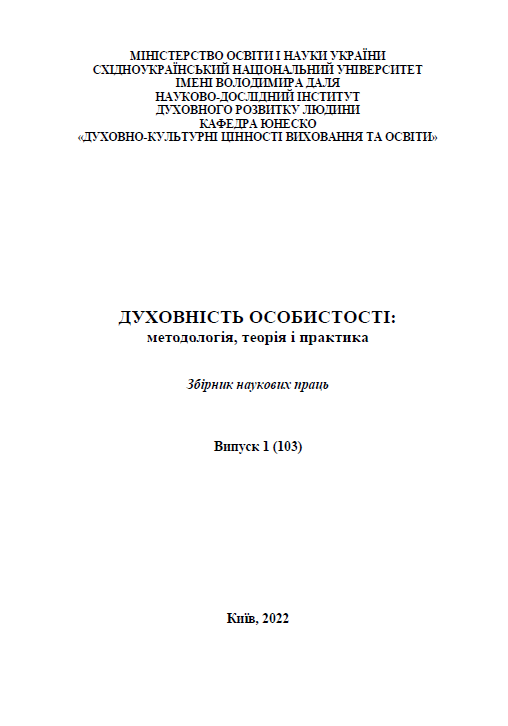PSYCHOLOGICAL FEATURES OF TOLERANCE OF FUTURE PSYCHOLOGISTS
DOI:
https://doi.org/10.33216/2220-6310-2022-103-1-64-77Keywords:
Tolerance, higher education, educational process, applicant, psychologistAbstract
The article presents the results of theoretical analysis and empirical research of the problem of the formation of tolerance in the learning process at a higher educational institution. It has been proved that tolerance is a complex socio-cultural phenomenon of the modern world, characterized by a tolerant attitude towards another person, is an important socio-psychological condition that improves the results of cooperation and communication, a condition for the effectiveness of social ties, established and new forms of communicative interactions in public life. On the part of the individual, tolerance is an active life position, which is formed in the recognition of universal human rights and fundamental freedoms, manifests itself in the intention to achieve mutual understanding and harmony of various motives, orientations and thoughts without the use of force; it is an integral feature of the individual world of a person. Tolerance is a complex psychological phenomenon with a specific structure, which is considered in a complex of motivational-value, cognitive, emotional-volitional, conative and reflexive components.
The study of the level of development of tolerance of applicants for psychological education at different stages of training in a higher educational institution showed that the level of tolerance increases significantly in the process and in the result of training. Tolerance as a personality trait reaches the greatest development, ethnic tolerance reaches the least. Verbal tolerance among subjects of different years of study was formed at an average level, but it is growing dynamically. We believe that verbal tolerance is associated with the level of development of communicative competence and social intelligence. Communicative tolerance also develops in the course of study at a higher education institution. The greatest changes undergo indicators on the scales: "rejection or misunderstanding of the individuality of another person", "using oneself as a standard in assessing the behavior and way of thinking of other people", "categorical or conservatism in the assessments of other people", "inability to hide or smooth out unpleasant feelings in a collision with non-communicative qualities of partners", "the desire to adjust a partner to fit himself, to make him "comfortable"", "inability to forgive others for mistakes, inconvenience, unintentionally caused troubles", "intolerance to physical or mental discomfort created by other people".
Consequently, the system of training future psychologists in higher educational institutions contributes to the formation and development of personal tolerance.

